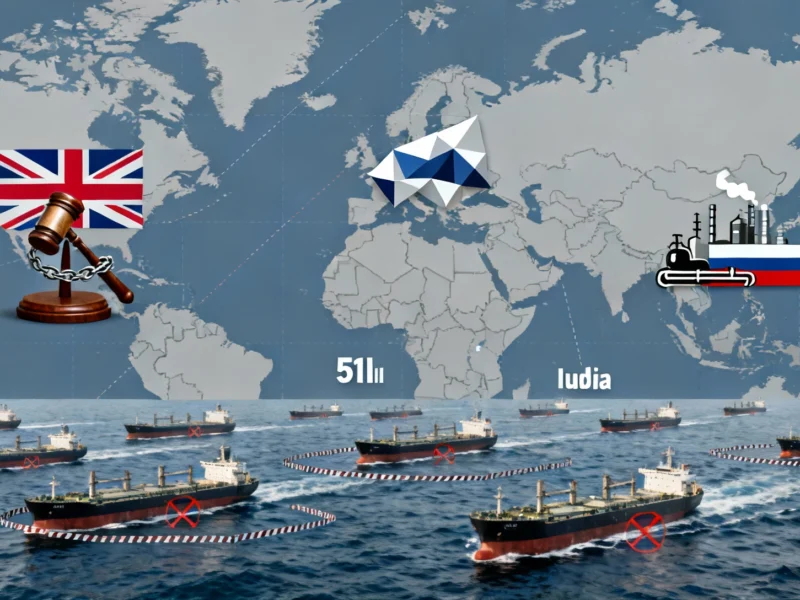Major Sanctions Against Russian Energy Giants
Britain has targeted Russia‘s two largest oil companies, Lukoil and Rosneft, alongside 51 shadow fleet tankers in what officials describe as a new effort to tighten energy sanctions and disrupt Kremlin revenues, according to reports. The government stated these economic sanctions represent a significant escalation in efforts to constrain Russia’s ability to fund its military operations.
Finance Minister Rachel Reeves announced the measures while traveling in the United States, stating “We are introducing targeted sanctions against the two biggest oil companies in Russia, Lukoil and Rosneft.” She further indicated that Britain would simultaneously increase pressure on companies in third countries, including India and China, that reportedly continue facilitating Russian oil access to global markets.
Comprehensive Restrictions on Russian Oil Producers
Sources indicate that both Lukoil and Rosneft have been designated under Britain’s Russia sanctions laws for their alleged role in supporting the Russian government. The sanctions package includes asset freezes, director disqualifications, transport restrictions, and a ban on British trust services for both companies.
Analysts suggest these companies hold strategic significance to the Moscow Kremlin, with their activities reportedly contributing substantially to state revenues. According to the report, Rosneft accounts for approximately 40% of Russia’s total oil output, while Lukoil ranks as the country’s second-largest producer with significant foreign exposure compared to domestic peers.
Expanding Sanctions to Shadow Fleet and International Partners
The new sanctions reportedly target 51 vessels, including 44 within the so-called shadow fleet, alongside individuals and entities across multiple sectors including energy and defense. The measures also include seven liquefied natural gas tankers and the Chinese Beihai LNG terminal, which has allegedly been importing cargoes from the sanctioned Russian Arctic LNG2 facility.
Among the sanctioned companies is Nayara, a Russian-owned refinery based in Mumbai, India, whose largest shareholder is reportedly Rosneft. The refiner, already facing European Union sanctions, is reportedly scrambling to sustain operations despite these new restrictions.
Market Impact and Russian Response
Traders familiar with Russian oil sales suggest the British measures will reduce ship and insurance availability for Russia, as some Russian oil volumes were still being transported and insured by British-based companies on routes to Asia. This development reportedly means more Russian oil trade will migrate toward the shadow fleet, which utilizes non-Western insurance and services.
Russia’s embassy in London responded to the sanctions by claiming they would backfire by destabilizing global energy markets and increasing costs for British businesses and consumers. The embassy statement asserted that “Contrary to the loud assurances of British leaders, these restrictions will not have any impact on the Russian foreign policy course.”
Shadow Fleet Operations and Challenges
According to Western expert estimates cited in the report, the shadow fleet already exceeds 1,500 vessels, indicating no shortage of ships to transport Russian oil. However, analysts note that several Chinese and Indian ports have previously refused to unload tankers from the shadow fleet, creating additional complications for Russian oil sales.
The shadow fleet, described as a network of older tankers allegedly used to circumvent sanctions on Russian oil, has increasingly been targeted by Britain, the U.S., and the EU since Russia’s invasion of Ukraine in February 2022. This latest action represents a significant expansion of these efforts amid ongoing global economic pressures and technological developments affecting energy markets.
The sanctions come during a period of increased global service disruptions and executive movements in the technology sector, though officials indicate the timing reflects ongoing assessment of sanction effectiveness rather than external factors.
This article aggregates information from publicly available sources. All trademarks and copyrights belong to their respective owners.



